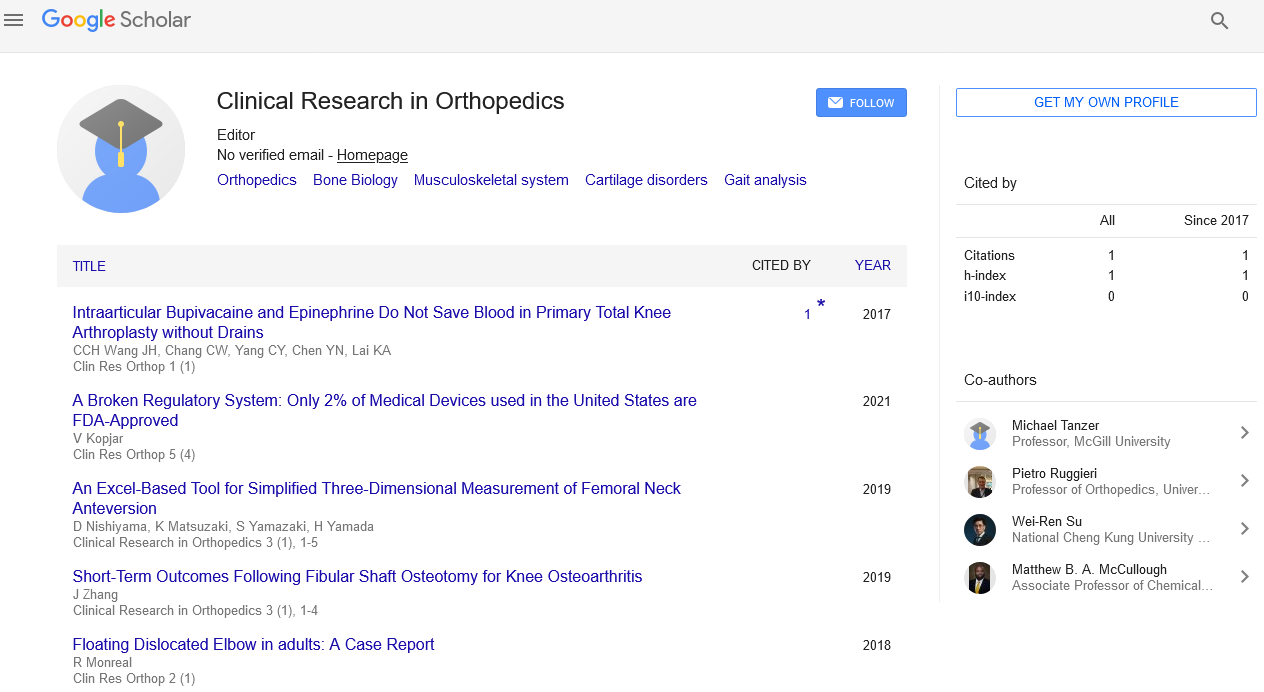Short Communication, Clin Res Orthop Vol: 5 Issue: 5
Transcending Clinic Walls: Physical Therapy Transforms Society through Community Engagement
Susan G Klappa
Briar Cliff University, USA
Abstract
Our educational programs teach professionalism, advocacy, evidencebased engagement and community engagement. The vision statement of the APTA calls us to transform society. How is it possible to teach and learn skills of societal transformation when there is so much else to learn? The SEED-SCALE model involves the ability to learn to adapt and innovate across a broad spectrum of human experiences. It is the truest definition of evolutionary progress and societal transformation. SEED-SCALE standardizes a process for evolving locally specific solutions. Many of the worsening conditions of peoples’ lives today are the result of earlier well-intentioned actions. Community and development programs may stimulate economic growth, but often do not benefit all people. These programs lift some or most, but often these programs thrive on disparity, benefitting only a few. Fundamental change happens in our lives because of what people do, making use of what they have, where they are today! Community action has the potential to scale up global solutions by integrating with systems of governance, technical expertise and cultural expression. Community-based growth occurs quickly as people teach each other, hold each other accountable and enact localized adaptive decisions in an iterative manner to respond to opportunities. Genuine human progress involves the use of human hands, hearts and minds to do what we can with what we have here, today. Empowerment is what people do using partnerships with structures of authority, outsiders and communities using bottom up, top down and inside out collaborations. By utilizing the World Health Organization’s International Classification of Function (ICF) Model, physical therapists can analyze and understand the influence of racism, ableism and structural oppression as environmental factors that create poor health and inhibit participation in important life activities.
Introduction
Our educational programs teach professionalism, advocacy, evidencebased engagement and community engagement. The vision statement of the APTA calls us to transform society. How is it possible to teach and learn skills of societal transformation when there is so much else to learn? The SEED-SCALE model involves the ability to learn to adapt and innovate across a broad spectrum of human experiences. It is the truest definition of evolutionary progress and societal transformation. SEED-SCALE standardizes a process for evolving locally specific solutions. Many of the worsening conditions of peoples’ lives today are the result of earlier well-intentioned actions. Community and development programs may stimulate economic growth, but often do not benefit all people. These programs lift some or most, but often these programs thrive on disparity, benefitting only a few. Fundamental change happens in our lives because of what people do, making use of what they have, where they are today! Community action has the potential to scale up global solutions by integrating with systems of governance, technical expertise and cultural expression. Community-based growth occurs quickly as people teach each other, hold each other accountable and enact localized adaptive decisions in an iterative manner to respond to opportunities. Genuine human progress involves the use of human hands, hearts and minds to do what we can with what we have here, today. Empowerment is what people do using partnerships with structures of authority, outsiders and communities using bottom up, top down and inside out collaborations. By utilizing the World Health Organization’s International Classification of Function (ICF) Model, physical therapists can analyze and understand the influence of racism, ableism and structural oppression as environmental factors that create poor health and inhibit participation in important life activities.
 Spanish
Spanish  Chinese
Chinese  Russian
Russian  German
German  French
French  Japanese
Japanese  Portuguese
Portuguese  Hindi
Hindi 